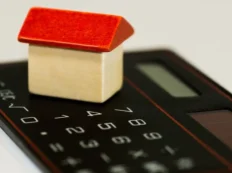LEARNING CENTRE >>

Embarking on the journey to homeownership is a thrilling adventure, yet it's one of the most substantial financial decisions you'll make. Given that the lifespan of a typical home loan ranges between 25 to 30 years, ensuring your financial readiness is paramount. At The Happy Finance Company, we believe in empowering you with knowledge and tools to make this journey not just successful, but also joyful.
Here’s an in-depth guide to getting your finances in tip-top shape before you buy a home.
1. Assess your motivations for buying a home
Before diving into property listings, take a step back and ponder your reasons for wanting to own a home. Compare the financial implications of renting versus buying in your current situation. If your career or lifestyle may lead you to relocate shortly, it might be wise to delay buying. However, if homeownership aligns with your long-term goals and lifestyle, it's time to examine your finances more closely.
2. Take a deep dive into your financial situation
A thorough review of your financial health is the next step. This includes an assessment of your income, expenses, debts, assets, and credit score. Lenders scrutinize these details to evaluate your loan eligibility. High levels of existing debt can reduce your borrowing capacity and affect your ability to make regular home loan repayments.
To enhance your attractiveness to lenders:
Aim to reduce or eliminate high-interest debts.
Keep your living expenses within a reasonable range.
Boost your savings, showcasing your ability to save consistently.
3. Determine your purchasing power
Now that you've got a handle on your finances, it's time to figure out how much you can afford to spend on a home. Remember the cost of a home extends beyond the purchase price. Factor in additional expenses like stamp duty, conveyancing fees, and potentially Lenders Mortgage Insurance (LMI) if your deposit is under 20%.
Using a borrowing power calculator is a good way to help you understand what you could afford to borrow, and therefore what a reasonable purchase price for a home would be.
4. Consider your current and future lifestyle
Your lifestyle and any anticipated changes are crucial in determining the type of home that suits you best. Whether it’s a job change, a potential promotion, or family planning, these factors should influence your decision-making process. It’s all about finding a balance between your present needs and future aspirations.
5. Engage in thorough research
Arming yourself with knowledge through research is invaluable. Investigate the property market in your preferred locations to understand pricing trends. Utilize property reports to gain insights into price estimates, sales history, and real estate trends. This information is key to making an informed decision.
6. Save diligently for a deposit
The journey to saving for a home deposit is a pivotal step in the home buying process. It's about more than just accumulating savings; it's a demonstration of your financial responsibility and discipline to potential lenders. A robust deposit serves multiple purposes in the home buying journey. Firstly, it reduces the amount you need to borrow, which in turn lowers your monthly repayments. Secondly, a deposit of 20% or more of the home’s purchase price generally exempts you from needing Lenders Mortgage Insurance (LMI). LMI is a one-off insurance payment protecting the lender if you default on your loan, and it can add thousands of dollars to your loan cost.
While a 20% deposit is ideal, it's not always feasible, especially for first-time buyers in high-cost markets. Many lenders offer loans to buyers with smaller deposits, sometimes as low as 5%. However, this comes with the caveat of having to pay LMI.
7. Investigate first home buyer incentives
For first-time homebuyers, various government schemes and grants can make entering the property market more accessible. These incentives often vary by state but can include stamp duty concessions, grants, and the First Home Loan Deposit Scheme, which allows eligible buyers to purchase with a smaller deposit without paying LMI.
8. Compare home loan options
Finding the right home loan is about more than just the interest rate. Compare loans from various lenders to find one that offers the best terms for your situation, including features like offset accounts, redraw facilities, and flexible repayment options.
At The Happy Finance Company, we're here to guide you through each step of your home buying journey, ensuring you feel confident and prepared. Our team is dedicated to providing you with personalised advice and support, helping you to navigate the complexities of the property market with ease.
Like this? Share it!
ANDREA PALELLA (O'SHEA)
MATHEW CROSSLEY
MATTHEW GOODYEAR
STAY TUNED
FOR OUR NEXT
TOTALLY AWESOME BROKER,
STARTING SOON!




